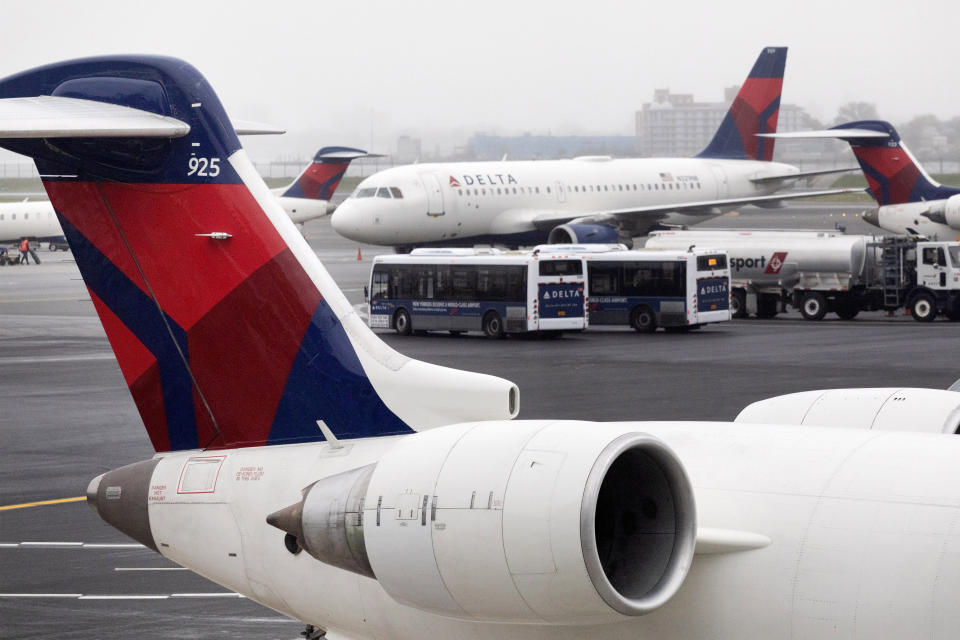Delta's old planes helped a strong quarter, but spark climate concerns
Delta (DAL) announced strong fourth-quarter earnings Tuesday, thanks to strong domestic demand and growth of its premium offerings, which saw 9% higher revenue since last quarter.
The airline beat expectations of $1.40 earnings per share with $1.70.
The strong demand and cheap fuel drove the airline’s success, but another part of Delta’s success story revolves around the 737 MAX. Delta, unlike Southwest (LUV), American (AAL), and United (UAL), didn’t have any exposure to the beleaguered 737 MAX, and Boeing’s tremendous woes hasn’t really impacted the company.
The costs associated with the groundings have hurt airlines and passengers alike, and even GDP.
“We’ve clearly been a beneficiary [of this situation],” Delta executives said on the earnings call. “As long as the MAX stays out of the sky, we’ll continue to be one.”

Meanwhile, American Airlines just pushed back its expectations of a 737 MAX return to service until June. This date has moved many times already, and there’s no guarantee it won’t move again. Good news for Delta.
Part of the reason the 737 MAX isn’t an issue is because Delta has been less proactive in replacing old planes in its fleet. The average age of its airplanes is 15.8 years.
Environmental impact of old fleets
Delta has around 900 airplanes, and fuel inefficiency of an older fleet means an environmental impact for the carrier.
On the earnings call, one analyst noted that while analysts have commended the old fleet as a good strategy — especially given how it allowed the airline to side-step the Boeing fiasco that plagues competitors — it might come back to haunt the airline with respect to ESG compliance. ESG (environmental, social, governance) is a term for investments that carry more of a sustainable and social focus, especially in regard to climate change.
The analyst brought it up given that BlackRock chief executive Larry Fink published his annual letter to CEOs saying that the time is now to address climate risk. BlackRock is the world’s largest money manager and is a significant shareholder for almost all large companies.
Delta CEO Ed Bastian said it takes ESG seriously, but added that, “candidly, having an older fleet has given us opportunities to move faster maybe than others.”
However, Bastian noted that the airline was adding 80 new planes in 2020 — and that they would be 25% more efficient. (That’s around 9% of the fleet.)
Bastian said Delta has achieved carbon neutrality since 2012; he reinforced his commitments, noting that fleet age is only part of it.
“I think you’re going to hear us talk a lot more about that,” said Bastian. “I think [Fink’s] message is right.”
-
Ethan Wolff-Mann is a writer at Yahoo Finance focusing on consumer issues, personal finance, retail, airlines, and more. Follow him on Twitter @ewolffmann.
The first thing to do after you're involved in a hack, according to experts
Companies are secretly scoring you, but good luck getting your data
'Snake oil salesmen': Two neurologists respond to the CBD craze
Large-scale credit card hackers back for the holiday season, ex-FBI investigator says
Read the latest financial and business news from Yahoo Finance
Follow Yahoo Finance on Twitter, Facebook, Instagram, Flipboard, LinkedIn, YouTube, and reddit.